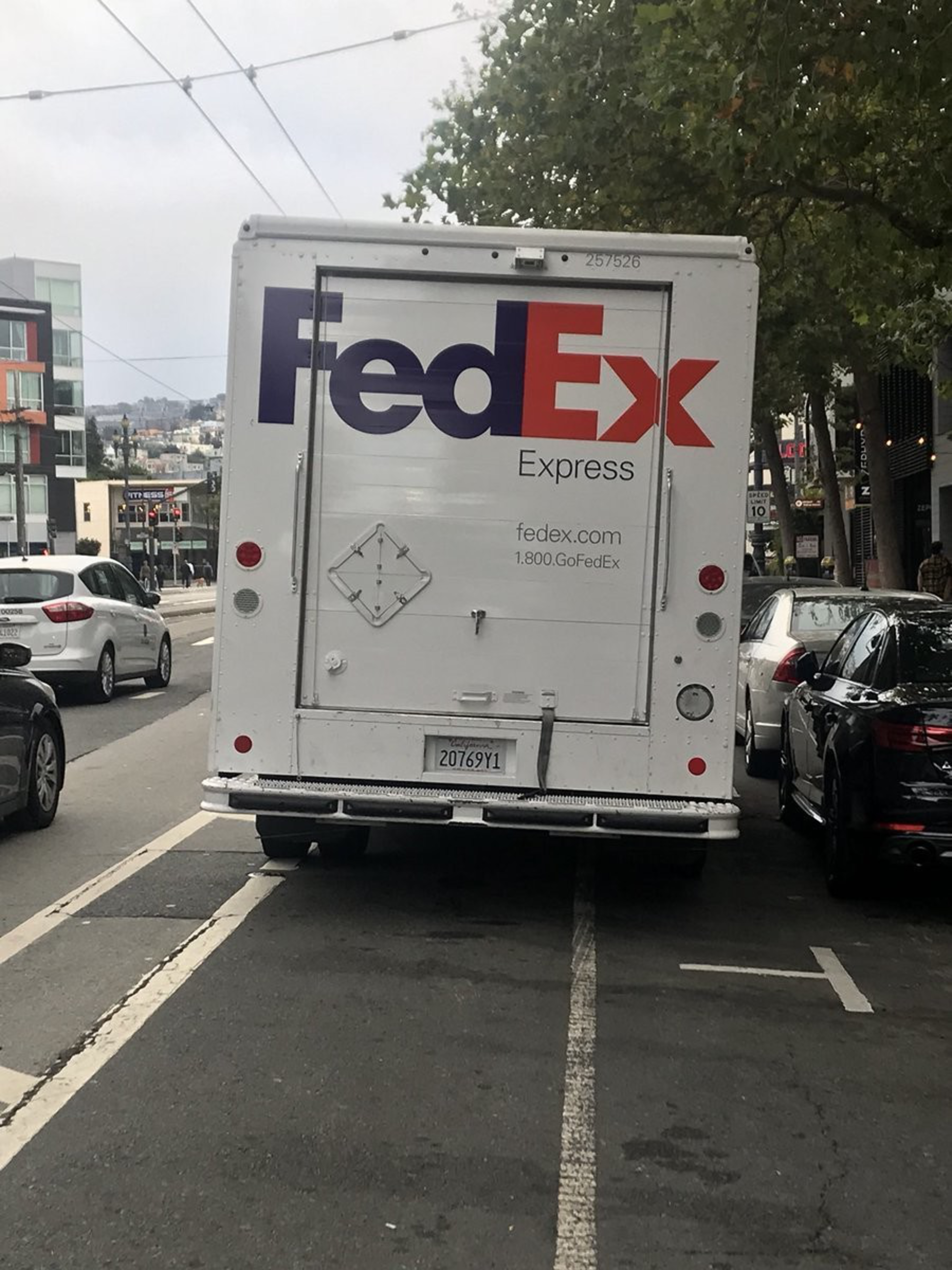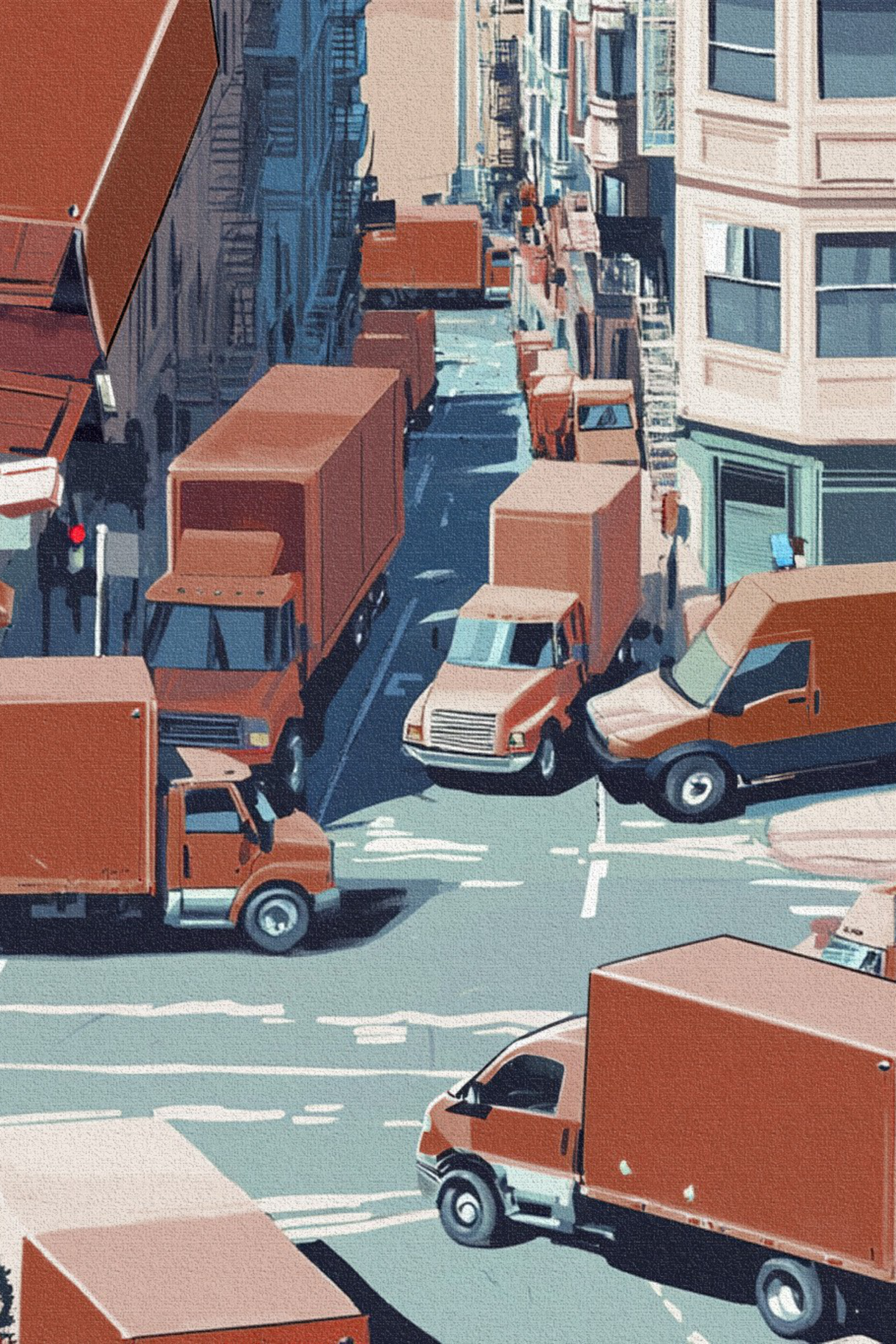Donna Casey looks down San Francisco’s hilly streets and sees treacherous ski slopes.
“It would just make life easier if it wasn’t like a slalom,” the Cathedral Hill resident said of navigating roads filled with double-parked delivery vehicles. “It just becomes perilous to drive around.”
Locals, and city leaders (opens in new tab), have long bemoaned commercial drivers’ habit of parking wherever they want, clogging streets and blocking bike lanes. Some residents, like Casey, say the rise of home delivery has made the problem worse than ever.
To better understand how bad the situation with delivery vehicles has become, The Standard obtained invoices for every parking citation the San Francisco Municipal Transportation Agency issued in 2023 to businesses that registered their fleet license plates with the city. (The optional program allows companies to pay all parking tickets at once, instead of one by one.)
The invoices showed that three dozen companies received a total of more than 14,260 parking citations in 2023, adding up to nearly $1.6 million in fines. UPS was the most ticketed company, receiving more than 15 a day. FedEx came in second, at eight tickets a day.

Recently departed moped rental company Revel took third place, at four tickets a day. While Revel didn’t reply to questions about how it racked up so many citations, history has shown that app-based rental customers aren’t afraid to shirk local driving laws.
(Amazon, which contracts out its delivery operations to other companies, was not on the list. The delivery giant directed The Standard to a logistics resource page (opens in new tab) but did not provide a list of local subcontractors, making it impossible to determine how many fines could be traced back to it.)
Joseph Cilia, principal officer of the local Teamsters union that represents San Francisco UPS drivers, said the company sees parking tickets as a cost of doing business in an industry that prioritizes speed and efficiency.
“I don’t care if you park on the sidewalk; just deliver the packages,” Cilia said, describing UPS management’s attitude.
The company is more diplomatic. “UPS drivers are taught to park safely and legally and be as expedient as possible on all deliveries to minimize parked time,” a spokesperson said in a statement.
In 2019, when reports emerged that UPS racked up nearly $34 million in parking fines in New York City, a spokesperson said (opens in new tab) the company had instructed drivers to double-park if they couldn’t find a legal space.

While the 2023 citation invoices obtained by The Standard provide just a snapshot of the issue, a 2007 report (opens in new tab) indicates that commercial parking tickets have declined significantly in the intervening years. That report found that both UPS and FedEx racked up more than twice as many citations in 2006 as they did in 2023.
Cilia suggested that the reduction may be a consequence of San Francisco’s declining downtown activity. As delivery demand has shrunk in the area, more packages are going to the city’s residential neighborhoods, where drivers are less likely to get ticketed, Cilia said.
Double-parking is illegal in San Francisco, including for commercial vehicles, said SFMTA spokesperson Erica Kato. But residents shouldn’t expect delivery vehicles to clean up their act anytime soon.
“Stopping fleet violations is challenging when the company pays the citations without any impact on the drivers,” Kato said. “There has been little change in the behavior.”

